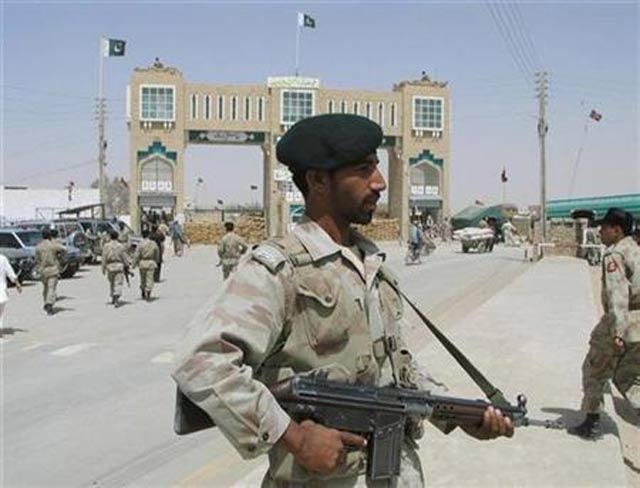
The announcement comes a day after Pakistan detected two new cases of the virus bringing the total number of infected patients to four.
The Pak-Afghan border at Chaman would close from Monday (today) for seven days “in order to prevent the spread of coronavirus on both sides of the border in the best interest of the people of the brotherly countries”, said a notification issued by the Ministry of Interior.
“During the period, necessary measures will be taken to safeguard the health of the people of both countries,” it stated, adding that the second crossing point at Torkham in Khyber-Pakhtunkhwa would remain open.
“The situation would be reviewed after seven days and an appropriate decision would be made,” an official of the Ministry of National Health Services said.
The Ministry of Interior has sent an official notification to the Balochistan authorities to close the border at Chaman.
The de facto Health Minister, Dr Zafar Mirza, said, “This is a crucial step we had to take to safeguard the health of people of the two countries as the border crossing had a heavy traffic of travellers from both sides on a daily basis.”
Mirza said the government, under the leadership of Prime Minister Imran Khan, had put measures in place and taken steps in the best interest of the people in the wake of the coronavirus outbreak.
“The situation demands a coordinated national response and federal as well as provincial governments and all relevant agencies are working in unison to meet the challenge,” Mirza said, adding that the role of the communities and media was of utmost importance in sharing only accurate and authentic information so panic could be avoided and risk averted.
Authorities shut educational institutions in the southern province of Sindh, including the country’s largest city Karachi where the first case was reported, and the southwestern province of Balochistan, which borders Iran.
The Sindh government has extended the closure of educational institutions until Mar 13 after the second case surfaced in Karachi. Earlier, it had shut schools from Feb 27 to Mar 2. Similarly, the Balochistan government also closed educational institutions in the province from Feb 26 to March 15.
Of the 7,664 Pakistani pilgrims in Iran, 709 have been allowed into the country after undergoing screening at the Taftan border.
“The authorities have stepped up scanning measures at airports and other border crossings, including western Afghanistan,” said Mirza.
Pakistan is sandwiched between China and Iran – which are both fighting major outbreaks – sparking fears about the country's ability to cope with an epidemic of its own.
The country has suspended all flights to Iran and closed land borders.
Pakistan and Afghanistan are divided by the Durand Line, a 2,400-kilometre frontier with villages straddling the border and mosques and houses having one door in Pakistan and another in Afghanistan.
Global outbreak
China reported a fresh spike in coronavirus infections on Sunday, as President Donald Trump urged calm after the first death on US soil and Australia registered its first fatality.
The virus has spread to more than 60 countries around the globe, prompting WHO to raise its risk assessment to its highest level.
Worldwide, nearly 3,000 people have been killed and about 87,000 infected since the virus was first detected late last year in the central Chinese city of Wuhan.
China on Sunday reported 573 new infections, the highest figure in a week after a dip. All but three of them were in Hubei province, of which Wuhan is the capital.
While the numbers in China are still far lower than the huge daily increases reported during the first two weeks of February, COVID-19 has spread rapidly across borders, with South Korea, Italy and Iran emerging as hotspots.
(With additional input from agencies)


















COMMENTS
Comments are moderated and generally will be posted if they are on-topic and not abusive.
For more information, please see our Comments FAQ